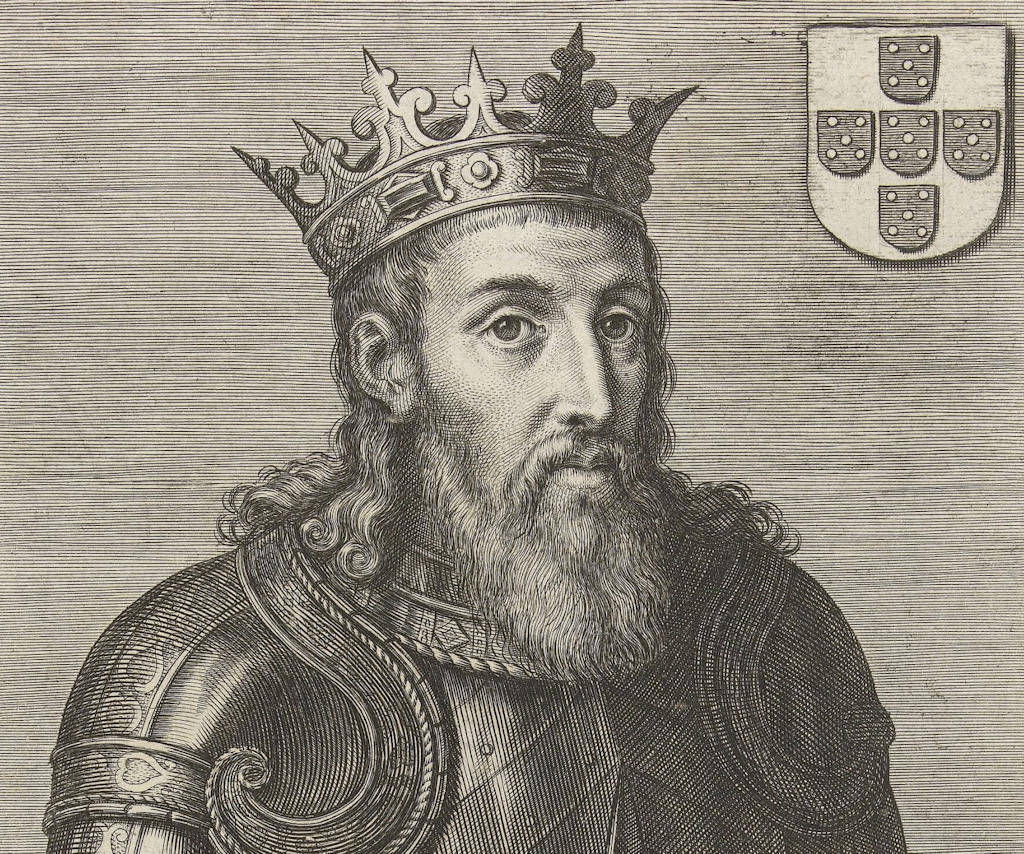In his early years, Sancho faced the challenge of securing Portugal's independence, as neighboring kingdoms sought to re-annex the fledgling nation. To consolidate his position, he forged alliances, including a marriage to Dulce, the sister of King Alfonso II of Aragon, in 1174. This alliance with Aragon marked the first recognition of Portugal's independence by an Iberian kingdom. Sancho's diplomatic efforts and military prowess successfully defended Portugal against external threats, allowing him to focus on internal development.
Coimbra became the center of Sancho's kingdom, and he dedicated his efforts to organize and strengthen the nascent nation. He initiated administrative reforms, supported new industries, and fostered the growth of the middle class of merchants. Recognizing the importance of education, Sancho used the royal treasury to send Portuguese students to European universities, promoting intellectual and cultural exchange. His love for knowledge and literature led him to write several books of poems, showcasing his artistic and intellectual talents.
Sancho's reign was characterized by his unwavering commitment to expanding and populating the kingdom. He established new towns and villages, such as Guarda in 1199, and actively encouraged settlement in remote areas of northern Portugal. It is this emphasis on population growth that earned him the moniker "the Populator". His efforts contributed to the expansion of the Christian regions and the consolidation of Portuguese power.
In his military campaigns, Sancho demonstrated strategic acumen and ambition. With the assistance of soldiers en route to the Third Crusade, he captured the city of Silves in 1189. This significant victory solidified Portuguese control over the south, resulting in the fortification of Silves and the construction of a castle that stands as a testament to Sancho's military achievements. However, the constant threats from León and Castile necessitated his attention to the northern borders, leading to the eventual loss of Silves to the Moors in 1191.
Sancho's personal life was marked by his marriage to Dulce, with whom he had eleven children. Among his children, several went on to leave their mark on history. Theresa, his eldest daughter, became the wife of King Alfonso IX of León and was beatified in 1705. Sancha, another daughter, founded the Monastery of Celas near Coimbra. Afonso, Sancho's son, succeeded him as the third king of Portugal, continuing his father's legacy.
Outside of his marriage, Sancho had relationships with other women and fathered additional children. Notably, his affair with María Pais de Ribeira, known as "a Ribeiriña", produced several children, including Rodrigo Sanches and Gil Sanches. These children, though born out of wedlock, played notable roles in Portuguese society.
King Sancho I passed away in Coimbra at the age of 56, leaving behind a transformed and thriving nation. His reign marked a pivotal period in Portugal's history, characterized by territorial expansion, administrative reforms, and the promotion of education and culture. King Sancho I's commitment to nation-building and his enduring legacy as "the Populator" ensure his place among the most influential monarchs in Portuguese history.



